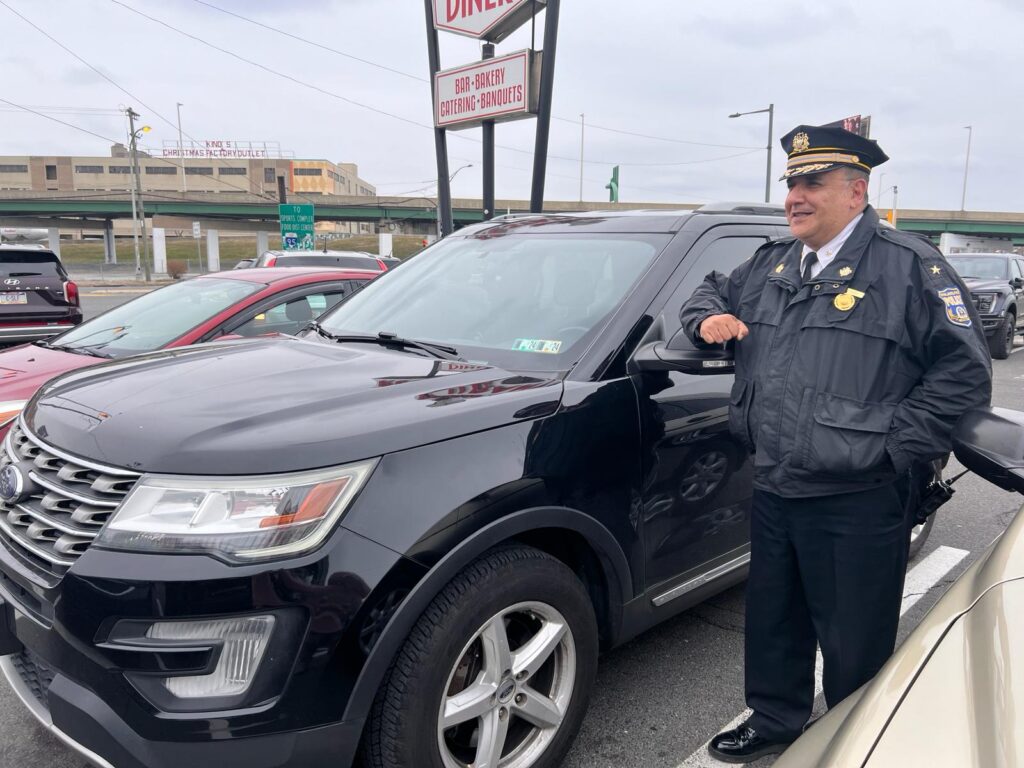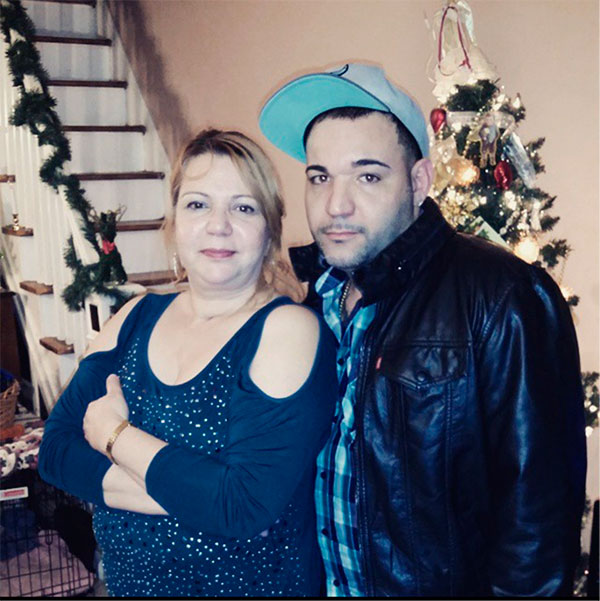
“My biggest goal is to move in the right direction. Like the movement of a freight train, it will be slow at first until we get going,” says Pedro Rosario, the first Latino Deputy Commissioner for the Police Department.
I met with Rosario to discuss his new historic role and goals for the Kensington area, his primary assignment. “The public safety of the city is the prime focus of the police,” according to the Deputy Commissioner.
Public safety in the Kensington area includes the removal of open-air drug use, dismantling a billion-dollar drug market, having compassion for the unsheltered and addicted population along the corridor as well as acknowledging the legitimate concerns of the community. The police are working with other city departments, nonprofits, and private agencies to support the people affected by addiction and the neighborhoods, schools, and businesses in the area.
It is a behavioral challenge, and Deputy Commissioner Rosario is committed to making a positive change for this community. He is determined to see the progress made and will continue working hard to make it happen.
Rosario is a native of the Fairmount/Spring Garden area of Philadelphia and has practical views of how to turn the situation around in Kensington.
“It is all about people. We have to reset norms in the community and create a workable plan. Too often, we forget that the unsheltered people in Kensington are humans, too, and need resources and assistance to restore their lives. Dehumanizing people in addiction is part of the problem, and incarcerating people and filling up State Road is not the answer,” says Rosario.
“The plan that we are currently implementing includes surging resources into the area and partnering with local, state, and federal organizations,» he continues. “Our specially trained officers in the East Service Detail have access to an outreach resource hub with ready contacts to the Fire Department AR1 and AR2 and the Health Department, who provide on-the-scene medics and other providers. We also partner with third-party providers and area hospitals as well. It will take this and more, such as hand-picked officers and third-party specialists in addiction and recovery who come to the scene to provide outreach and counseling services. As the police, we provide a safety bubble for these addiction counselors to work. Our teams also conduct welfare checks for unsheltered people and try to keep track of individuals who have an ongoing history of living on the corridor.”
“Today, as I drove through the Kensington Corridor on my way to this interview, I counted 565 unsheltered people on the street. There is no doubt that creating positive change is a challenge, but we are ready to commit to that challenge. Officers in the Kensington Corridor area are trained to use Narcan. We hang bags of Narcan on the trees in case someone is overdosing so a resident or friend of the person can administer it. This is not a black-and-white situation; there are many shades of gray. When you talk to some of the unsheltered people living in tents along the Kensington Corridor, you hear their stories and realize that they are human beings caught in a web of addiction and need our help.” Explains Rosario
The Deputy Commissioner continues, “It will take more than the police to reach our goals. The police are mandated to maintain public safety, but we also need other types of professionals and third-party service providers. We work with medical teams to help with the wound care and physical deterioration of some of the users. We also need social workers and recovery specialists to provide avenues to a way out of this situation for those who are willing. Currently, we are working with other entities, but it would be helpful to expand.
“There is also a comprehensive plan to enforce the laws when it comes to drug sales and bad actors. Again, we are collaborating with our state and federal partners in this important effort,” explains Rosario.
“In addition to drug sales and addiction, there is also the issue of prostitution and the enforcement of laws that are already on the books”. I asked about the lack of enforcement of prostitution and how the police knew if the person wasn’t a victim of human trafficking.
In recent years, some of the efforts at enforcement of prostitution laws have been thwarted. “Dawn Court, which was a court established for prostitution cases, offered alternatives and assistance to people working on the street”, explains Rosario. However, Dawn Court is not in session at this time.
I asked how it would be possible for the police to know if there was a human trafficker involved in a prostitution case or if the person was otherwise being forced, and Deputy Commissioner Rosario responded, “There is a task force that works on human trafficking cases, and we work with them. Dawn Court has been helpful to many people. Years ago, I met a woman who was working in the Hunting Park area, and now, partly due to the help of Dawn Court, she is a nurse leading a full and productive life in her hometown in North Carolina. The system can work when the plan is effective.”

“Today, Kensington is known internationally for its problems, but a few decades ago, the area was thriving, and I believe we can bring it forward to a new renaissance. Currently, a few businesses have opened on the Avenue, hoping to establish themselves in expectation of change. A Mexican restaurant, ‘Cantina la Martina,’ has opened its doors at Kensington and Somerset and has gotten rave reviews in the city. When you go inside the establishment, you forget where you are. Luxury homes were built just a few blocks from the highest problem area, and the residents have formed an association to advocate for change in the area. These are some of the signs of a new tomorrow in Kensington,” says Rosario.
His advice for young people who would like to enter the Philadelphia Police Department is to consider that being an officer is a calling and not just a paycheck. Rosario clarified this by saying, “You will put your life on the line every day, and that takes a lot of commitment to the job and the communities you serve.”
Pedro Rosario worked his way through the ranks, and he began his career as a civilian police dispatcher at the age of 19. Eventually, at 23, he became a police officer and rose to the positions of Lieutenant, Captain, and presently, Deputy Commissioner. Deputy Commissioner Rosario says he comes from a family that believes in public service. His Puerto Rican father always told him he should be someone others could count on.

I met Pedro Rosario seven years ago while attending the murder trial of the individual that killed my son, Alex. At that time, it was Lieutenant Rosario. He was first on the scene when my son was shot and killed. Back then, I asked him to share what had happened. He was compassionate as he chose his words carefully and told me what he believed I could handle. After this interview, I asked him to share some more details.
He did; his words were more direct this time, and they gave me a better picture of the efforts of the police, firemen, and medics to save his life. I have learned that Deputy Commissioner Rosario believes in the law and compassion for all the victims and people in need.






















